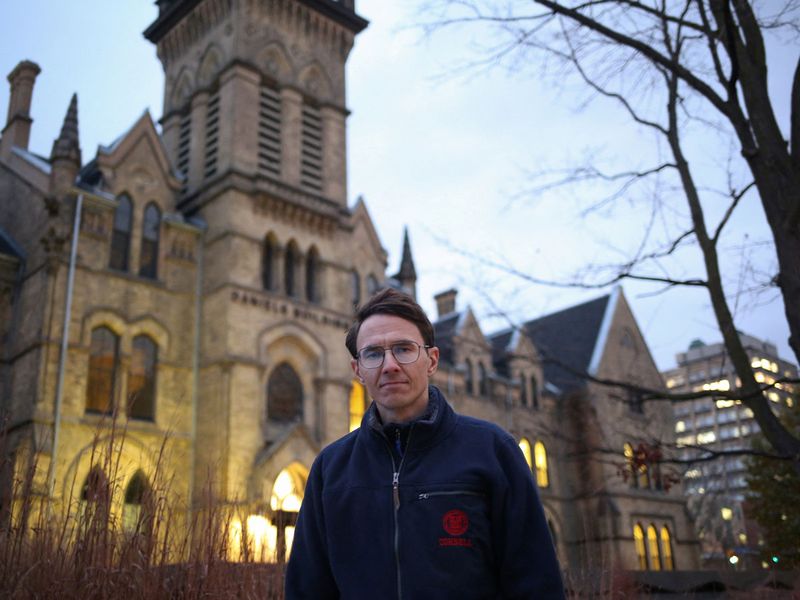
Toronto: In the first six months of 2023 some 42,000 individuals departed Canada, a Reuters report revealed based on official data on Saturday, adding to 93,818 people who left in 2022 and 85,927 exits in 2021.
The trend of 'reverse immigration' is increasing across Canada and data shows that people are looking to leave the country owing to the high cost of living. This turn of events is a hit to signature immigration policies touted by Canadian Prime Minister Justin Trudeau, whose term saw permanent residency granted to a record 2.5 million people in just eight years.
In July this year, the government had announced new policies and exemptions aimed at helping immigrants skill up, and to attract more skilled immigrants to move to Canada. In addition to this, the government also opened study and work permits for 10,000 American H-1B visa holders, and their families.

Express Entry
For Express Entry in particular, the authorities announced the launch of category-based selection for the program. Canada’s immigration minister, Sean Fraser, announced the new stream in June earlier this year, inviting applicants with at least 6 months experience in related fields in Canada or abroad - along with other immigration requirements.
Express Entry is Canada’s flagship application management system for those seeking to immigrate permanently through the Federal Skilled Worker Program, the Federal Skilled Trades Program, the Canadian Experience Class and a portion of the Provincial Nominee Program.
Highly-talented applicants without job offers
It was also this year that the Canadian government announced the Innovation Stream. This was aimed at highly talented individuals who did not have a job offer in hand.
The conditions are, (a) if you have special skills in a job that is in high demand, you can get a work permit that lets you work in Canada for up to five years without needing a job offer, or (b) if you have a job offer from a company that the Canadian government has chosen because it helps Canada's industrial innovation goals, you can get a work permit to work there for up to five years.
Studying in Canada
IANS reported earlier this year that work permit holders in Canada can study full-time or part-time until the expiry of their work permit without needing any study permit. This was a major temporary change in policy for three years.
The temporary measure applies to those who hold a valid work permit or who have submitted an application to renew their work permit on or before June 7, and are authorised to work. If a foreign worker wishes to study longer than the duration of their work permit, they still need to apply for a study permit.
But, why are people leaving?
Immigrants blame the sky-rocketing housing costs as the biggest reason for their decision to consider a new country.

On average in Canada about 60 per cent of household income would be needed to cover home ownership costs, a figure that rises to about 98 per cent for Vancouver and 80 per cent for Toronto, RBC said in a September report.
Reuters spoke to immigrants who were planning to leave. Cara, 25, who came to Canada in 2022 as a refugee from Hong Kong, now pays C$650 ($474) in monthly rent for a single-room basement apartment in Scarborough, north of Toronto, which is about 30 per cent of her monthly take-home salary.
"I never realized that living in a Western country, you can only afford renting a room in the basement," she said. She declined to give her real name because she fled Hong Kong after participating in the 2019 protests triggered by a now-abandoned extradition bill.
Cara works three part-time jobs, making Ontario's minimum wage of C$16.55 per hour, and goes to an adult learning school to earn university credits.
"I almost use every single penny," she said, while in Hong Kong she was able to save about a third of her monthly salary.
Migrating back to Asia
Myo Maung, 55, migrated to Canada from Myanmar over three decades ago and made a successful career as a real estate agent and a restaurateur. But he plans to retire in a country like Thailand since he cannot see himself maintaining his living standard in Canada on his retirement income.
Last month Trudeau's government capped its target for new residents at a half million per year from 2025 onwards to ease pressure on the housing market.
But for some it is too little too late.
Justinas Stankus, 38, who came to Canada from Lithuania in 2019 to pursue a doctorate in political science at the UofT is considering relocating to Southeast Asia where the cost of living is lower and where he could still pursue his research.

Stankus, who pays C$2,000, including utilities, for a one-bedroom apartment, said increasing living expenses has made it difficult to afford basic necessities. "With a graduate student's budget, it is not sustainable," Stankus said.
Cara from Hong Kong says she feels trapped and wants to go.
"Whenever I get a chance to leave, I will take the chance."








